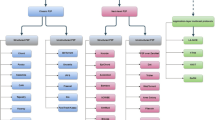Abstract
The research on P2P systems which support skewed key distributions has rapidly advanced in the recent years. Yet, the assumptions on the skews we are dealing with remained pretty simple: most of the existing literature assumes simple monotonous key distribution skews. However, this is not always the case. For example, Gnutella filename traces show that complex key-distributions rather than monotonous skews occur in practice. We show that one of the seminal P2P systems which support skewed keys - Mercury [7], performs poorly given such complex distributions generated from the trace of Gnutella filenames. We discuss the shortcomings of such state-of-the-art techniques. We present an overlay network Oscar, based on a novel overlay construction mechanism, which does not depend on the key-distribution complexity. We demonstrate through simulations that our technique performs well and significantly surpasses Mercury for such realistic workloads.
The work presented in this paper was (partly) carried out in the framework of the EPFL Center for Global Computing and supported by the Swiss National Funding Agency OFES as part of the European project Evergrow No 001935. The work presented in this paper was supported (in part) by the National Competence Center in Research on Mobile Information and Communication Systems (NCCR-MICS), a center supported by the Swiss National Science Foundation under grant number 5005-67322.
Preview
Unable to display preview. Download preview PDF.
Similar content being viewed by others
Author information
Authors and Affiliations
Editor information
Rights and permissions
Copyright information
© 2007 Springer Berlin Heidelberg
About this paper
Cite this paper
Girdzijauskas, S., Datta, A., Aberer, K. (2007). Oscar: Small-World Overlay for Realistic Key Distributions. In: Moro, G., Bergamaschi, S., Joseph, S., Morin, JH., Ouksel, A.M. (eds) Databases, Information Systems, and Peer-to-Peer Computing. DBISP2P DBISP2P 2006 2005. Lecture Notes in Computer Science, vol 4125. Springer, Berlin, Heidelberg. https://doi.org/10.1007/978-3-540-71661-7_25
Download citation
DOI: https://doi.org/10.1007/978-3-540-71661-7_25
Publisher Name: Springer, Berlin, Heidelberg
Print ISBN: 978-3-540-71660-0
Online ISBN: 978-3-540-71661-7
eBook Packages: Computer ScienceComputer Science (R0)




